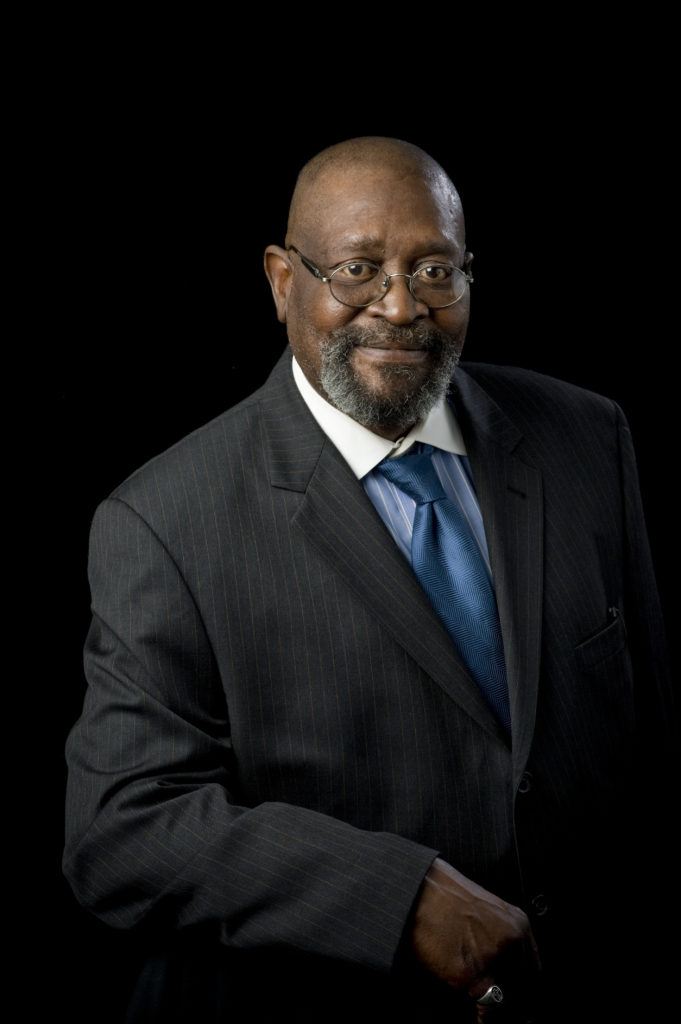
Carolina Paul joined the PJC in June 2018, and serves as Managing Paralegal in the Human Right to Housing Project. Before she came to the PJC, she conducted Medicaid outreach and enrollment for Baltimore County families. Carolina has worked in direct service and outreach in education, healthcare, and transportation. She is excited for the opportunity to translate these skills to a legal setting. Carolina grew up in Baltimore and graduated from the University of Chicago.
Phone: (410) 625-9409 x271
Email
she/her

Matt Hill is an attorney and team leader of the Human Right to Housing Project at the Public Justice Center (PJC). The Human Right to Housing Project seeks to protect and expand tenants’ rights to safe, habitable, affordable, and non-discriminatory housing and to fair and equal treatment by Maryland’s landlord-tenant laws, courts, and agencies. Matt has represented hundreds of tenants facing eviction and substandard housing conditions, advocated to create Baltimore City’s Affordable Housing Trust Fund with a dedicated funding source, acted as lead or co-counsel in a number of appeals involving landlord-tenant law, represented multiple classes of tenants in class actions challenging predatory landlord practices, advocated successfully to change Maryland and Baltimore City laws to strengthen tenant protections, and served as co-counsel in a HUD complaint and settlement that requires Baltimore County to dismantle policies that had perpetuated racial segregation and discriminated against persons with disabilities.
Prior to his working on the housing team, Matt was the Francis D. Murnaghan Appellate Advocacy Fellow at the PJC. In that capacity, he represented parties and amici in state and federal courts on various poverty law and civil rights issues in the U.S. Court of Appeals for the Fourth Circuit, the Court of Appeals of Maryland and the Court of Special Appeals of Maryland. Matt clerked for the Honorable Deborah S. Eyler on the Maryland Court of Special Appeals. He earned a J.D., summa cum laude, from American University’s Washington College of Law and a B.A., summa cum laude, from Loyola College. Before attending law school, Matt taught eighth grade at Mother Seton Academy in Baltimore City.
Matt serves as a commissioner on Baltimore City’s Affordable Housing Trust Fund. He has received the following awards and honors: 2018 Lorraine Sheehan Memorial Award from the Community Development Network of Maryland; 2017 Dickens Warfield Fair Housing Advocacy Award, Baltimore Neighborhoods Inc; 2011 Housing Justice Award, Housing Justice Network, sponsored by National Housing Law Project; 2011 Maryland Access to Justice Commission Outstanding Program of the Year Award to Tenants in Foreclosure Project of Public Justice Center.
Phone: (410) 625-9409 x229
Email
he/him

On August 8, 2020, we lost our beloved colleague Levern Blackmon. Levern first came to the PJC in 1996 through PJC’s Tenant Advocacy Training Project, which trained him as a volunteer lay advocate to represent tenants on the District Court’s rent docket. In 1998-1999 he was able to continue his work as an AmeriCorps volunteer. In 1999, Levern was hired as the Tenant Advocate/Case Manager. Levern represented and counseled thousands of tenants concerning tenant/landlord relations and secured tens of thousands of dollars for tenants from rent escrow accounts. In September 2002, Levern was appointed as the first paralegal for the PJC’s new Prisoners Project. In 2005, Levern began splitting his time between representing prisoners and tenants. He then returned to representing tenants full time as part of the Human Right to Housing team from the PJC’s office at the District Courthouse on Fayette Street.
Levern was also the recipient of the 2005 William L. Marbury Outstanding Advocate Award, which is awarded to a non-attorney who has demonstrated outstanding service in Maryland representing the rights and legal needs of the poor or by expanding access to justice for such persons.

When a person’s basic human needs are at stake, such as those involving their home, income, health care, or children, a lawyer can help protect what matters most. But in the United States, there is no federal right to state-funded counsel in civil cases. While all states provide a right to counsel for some types of civil cases by either statute or court decision (or both), the laws are patchwork and incomplete. Consequently, 92 percent of the civil legal needs of low-income individuals go unmet, and half of those requests made to civil legal aid organizations are turned away due to limited resources.
At the same time, low-income individuals routinely face opponents (the government, landlords, banks, and so on) who are represented. Studies have shown that this disparity in representation leads to unbalanced outcomes, and that the presence of counsel dramatically improves a person’s chances for success while saving money for cities and states by avoiding negative outcomes, such as the use of homeless shelters, emergency medical care, unemployment, and foster care.
As the operator of the National Coalition for a Civil Right to Counsel (NCCRC), the Public Justice Center supports efforts across the country to establish the right to a lawyer for low-income individuals in civil cases involving basic needs. The NCCRC provides significant technical, research, and writing support to over 600 coalition participants and partners in 45 states, maintains the national clearinghouse of information on civil right to counsel, and engages in public advocacy and awareness throughout the country.
Visit the NCCRC website, civilrighttocounsel.org, for the latest about right to counsel developments from across the country and follow the coalition on X, Facebook, and LinkedIn.
Impact
The movement for a right to counsel in eviction cases has reached a seminal moment: New York City; San Francisco; Newark; Cleveland; Philadelphia; Boulder; Baltimore; Seattle; Louisville; Denver; Toledo; Minneapolis; Kansas City; New Orleans; Detroit; Jersey City; St. Louis; Westchester County, NY; Los Angeles County; Washington State; Maryland; Connecticut; Minnesota; and Nebraska now guarantee tenants a lawyer when their housing is threatened, and NUMEROUS other cities and states have introduced bills to do the same. The NCCRC provided and continues to provide extensive support to these campaigns.
The Supreme Court of Ohio ruled that low-income parents have a right to an attorney in involuntary adoption cases under the Equal Protection Clauses of the federal and state constitutions.
The NCCRC has a regular presence in the national media. NCCRC Coordinator John Pollock co-authored an op-ed in Newsweek about the necessary federal, state, and local response to the eviction crisis, and the NCCRC was featured in right to counsel stories in The Appeal and Law360 as well as in eviction stories in the Wall Street Journal, Salon, NPR, and Washington Post.
NOTE: The NCCRC cannot assist individuals with representation, legal advice, or attorney referrals. Therefore, we do not respond to individual requests for assistance. Please contact the legal aid organization in your state or your state’s attorney referral program.

Everyone should have a place to call home. Yet renters face many challenges to securing stable, safe, and affordable places to live:
- Landlords often charge predatory, unexpected fees, making rent unpredictable and expensive.
- Landlords frequently don’t maintain properties in low-income neighborhoods, forcing tenants to live with mold, broken furnaces, leaks, and other threats to health and safety.
- Rent court practices favor landlords, making it difficult for tenants to get a fair hearing when they’re in danger of eviction.
- Development efforts fail to address the needs of people with limited incomes and neighborhoods where residents are predominantly people of color and have lower incomes. Development projects ignore the needs of these neighborhoods or gentrify them, driving up rents that force people out.
The Human Right to Housing Project takes on these challenges. We stand with tenants to protect and expand their rights to safe, habitable, affordable, and non-discriminatory housing and their rights to fair and equal treatment by Maryland’s landlord-tenant laws, courts, and agencies. We defend renters facing eviction, demand repair of unsafe housing conditions, and represent renters seeking systemic relief from predatory landlord practices. We advocate to change the law regarding evictions and to demand the development of equitable and sustainable affordable housing.
The Public Justice Center provides free legal assistance, depending on capacity, to 1) renters in Baltimore City who are facing eviction or have questions about their rights and 2) renters statewide whose landlords are in foreclosure. Please call us at (410) 625-9409 for more information. If you are a renter outside of Baltimore City and your landlord is not in foreclosure, please contact the Maryland Court Help Center or another nonprofit legal services provider. You can also find information on our Get Legal Help page.
Campaigns
Rent Court and Eviction Reform
Permanently Affordable Housing and Fair Development
Baltimore City faces an eviction crisis: landlords annually evict as many as 7,000 Baltimore families for not paying the rent. The crisis takes a particularly heavy toll on Black women, who make up the vast majority of people called to rent court. With so many cases, rent court is designed for speed and steers tenants away from defending themselves. This system favors landlords, whose representatives are frequently at rent court. When a tenant can’t afford a lawyer, she stands alone, trying to defend her family and home against a landlord who likely has an experienced agent or lawyer.
We provide legal advice, representation, and know-your-rights education to tenants in Baltimore’s rent court, as well as to tenants whose landlords have entered foreclosure, retaliated against them or otherwise tried to evict them. We also use class action lawsuits, advocacy with government agencies, and legislative advocacy to change practices and policies so that tenants can maintain stable and safe housing. We are stronger when we do this work together, and we are grateful for our partnerships with community organizing groups, advocacy organizations, and private law firms.
If you are a renter looking for legal assistance, call us at (410) 625-9409 or visit our Get Legal Help page for more information.
Impact
Worked in coalition with Baltimore Renters United to successfully advocate to pass legislation that will provide Baltimore tenants the right to an attorney in eviction cases, making Baltimore the 7th city in the nation to provide this right.
Worked in coalition to support passage of a law that requires all residential rental properties to undergo routine inspection and licensing to do business in Baltimore City.
Filed a class action lawsuit against a property management company that charged tenants illegal, excessive fees. The resulting settlement got tenants nearly $1 million in compensation and changed the landlord’s practices.
Worked in coalition to support passage of a law that prohibits landlords in Baltimore City from discriminating against tenants based on their source of income.
Secured a precedent-setting decision in Lockett v. Blue Ocean stating that rent is the fixed, monthly amount a tenant owes to live in the home and not any other fees the landlord might charge. This is important for preventing landlords from trying to collect extra non-rent charges through the rapid eviction process.
Wrote the report Justice Diverted: How Renters are Processed in the Baltimore City Rent Court, which provides a deep dive into Baltimore’s eviction crisis. The data demonstrates how the outcome of an eviction case often does not depend on the merits of the case. Rather, the fate of a family’s home rides on a court system that puts long-standing tenant protections and basic housing standards second to court efficiency and landlords’ bottom line.
Worked in coalition to support passage of a law that prohibits landlords and foreclosure sale purchasers from evicting or locking out a homeowner or tenant without court process or the presence of the Sheriff.
Worked in coalition to support passage of a law stating that tenants must be notified when a foreclosure is pending on their homes.
Worked in coalition to support a law that protects tenants from landlord retaliation when they exercise their rights to make complaints about dangerous housing conditions, participate in lawsuits, or join tenant unions.



